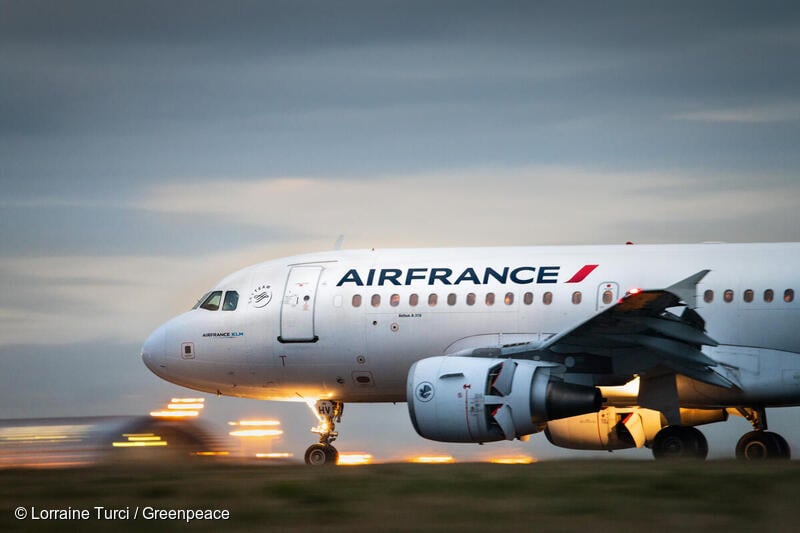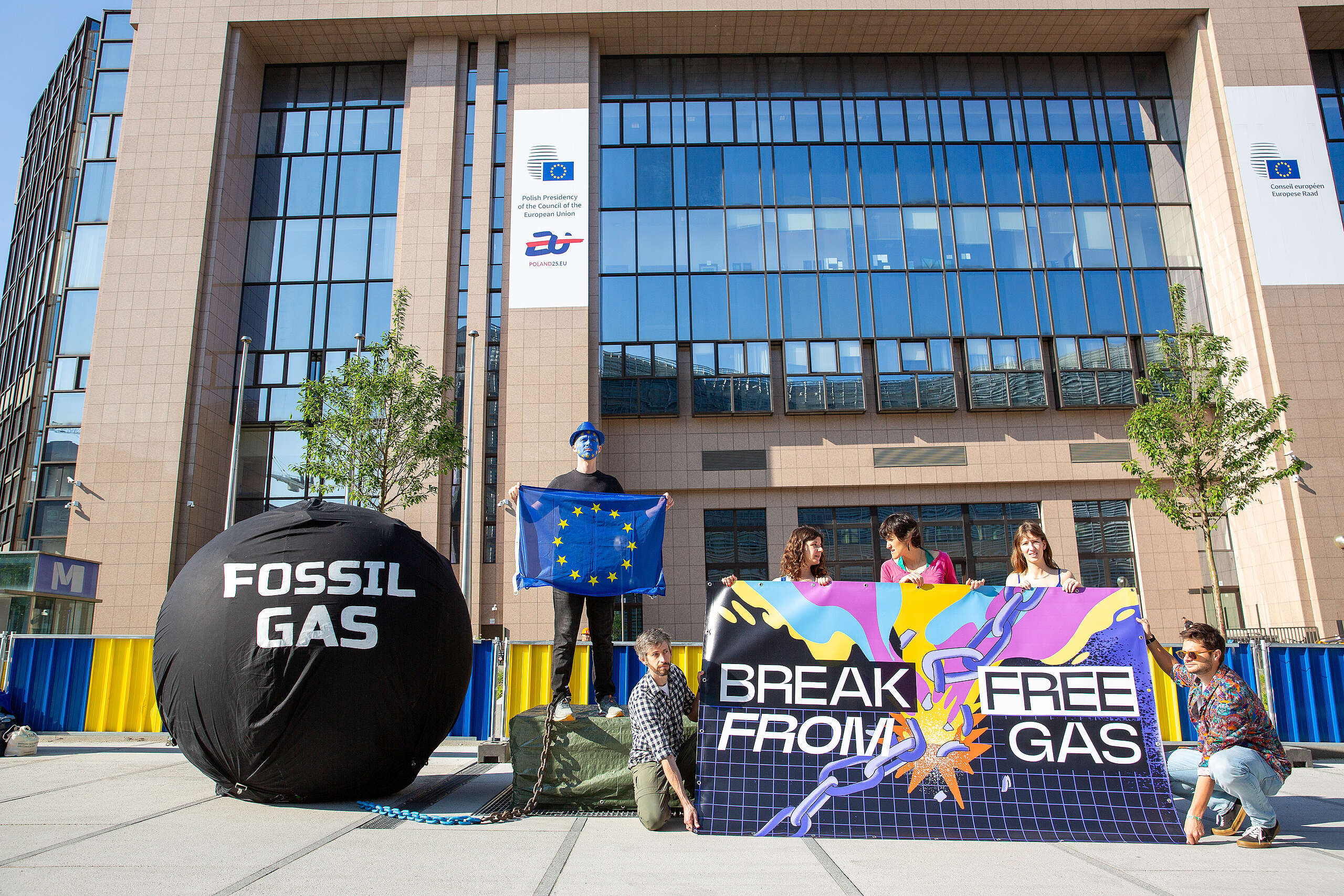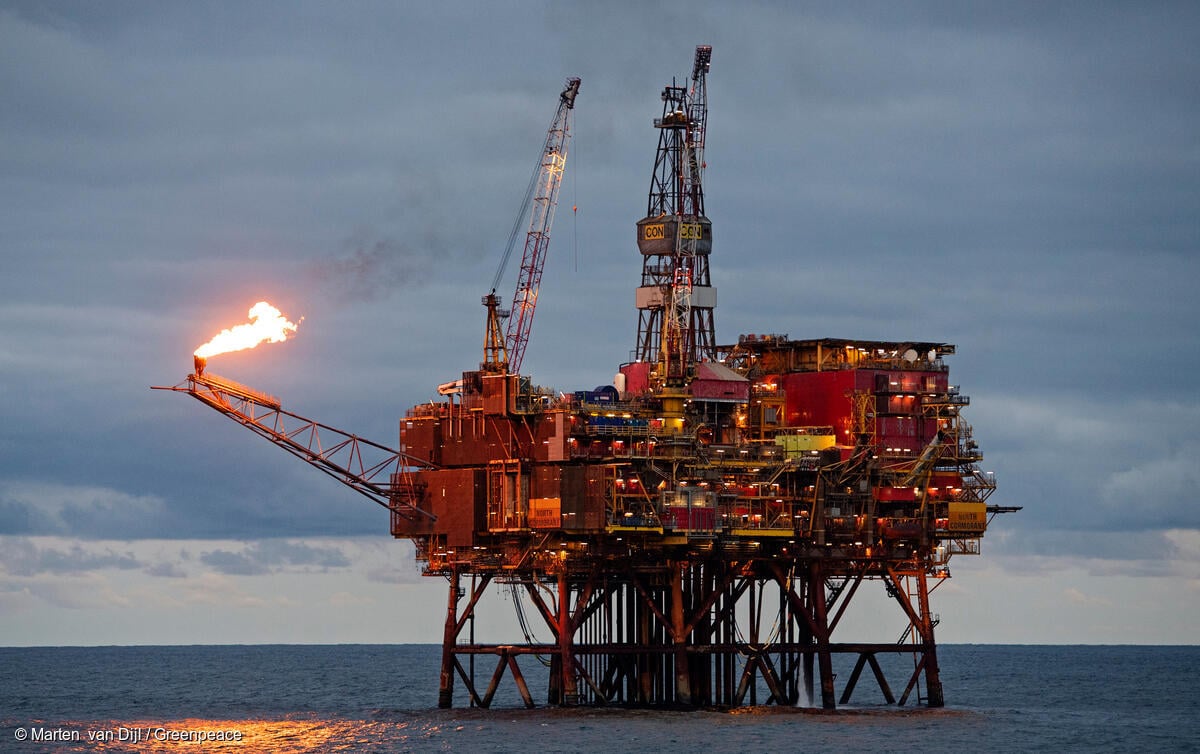Step in the right direction undermined by decision to limit the ban to three years

Brussels, 2 December 2022 – The European Commission has published its decision on the legality of the French ban on short-haul flights where there are train alternatives of two and a half hours or less. After extended in-fighting between aviation zealots and more climate-conscious personnel in the Commission, the EU executive has finally confirmed that the French ban is legal, as long as it is limited in time to three years, reviewed after two years and extended to cover connecting flights.
France adopted the limited ban in a 2021 climate law, and it was challenged immediately by French airports and airline lobbies.
Thomas Gelin, Greenpeace EU climate campaigner, said: “The French ban on short-haul flights where quick train connections exist is a baby step, but it’s one in the right direction. The small improvement the EU has asked the French government for is welcome – but now it’s time to remove any outstanding ambiguity and make it clear to other EU countries that banning short haul flights is the way to go for the future. It’s high time for Europe to curtail the aviation industry’s skyrocketing emissions and invest in climate-friendly transport instead.”
France’s 2021 short-haul flight ban was already extremely limited in scope, applying only to three out of over 100 domestic air connections in France. The Commission is extending the scope of the ban by requesting the removal of an exemption for connecting flights, while limiting it in time by imposing a three year expiry. This time limit is meant to comply with the European law on which the French ban is based (the Air Services Regulation), but in practice what this means is the Commission is saying that measures to tackle the climate emergency should be put up for review and exposed to challenge every three years, instead of being reinforced and held up as the example to follow.
The Commission is currently planning to revise the Air Services Regulation, which currently allows EU governments to suspend flights when there are serious environmental problems but which limits those measures to three years. This year-long challenge of the French ban shows this provision should be revised to ensure all EU governments can ban short-haul flights without fear of protracted challenges by the aviation lobby. Greenpeace is calling for a ban on short-haul flights with reasonable alternatives, meaning rail or ferry under six hours (whereas the French ban is limited to train alternatives of two and a half hours or less).
Background
In recent decades, aviation has been the fastest-growing source of greenhouse gas emissions in Europe (+29% between 2009 and 2019 in the EU) and the industry estimates it will reach pre-COVID air traffic levels by 2024, doubling air traffic globally by 2037.
Flights under 1,500 km are responsible for 25% of European aviation’s CO2 emissions. Although long-haul flights account for the biggest chunk of aviation emissions, many short-haul flights can already be replaced by trains, leading to immediate CO2 emission reductions. The Madrid-Barcelona flight for instance is one of the busiest flights in Europe and the busiest in Spain. Yet flying this route emits up to nine times more CO2 than taking a train, which covers the distance in two and a half hours, faster than the time the overall plane journey takes.
Greenpeace has calculated that just banning the EU’s busiest short-haul flights and shifting to rail wherever a train connection under six hours already exists would save the equivalent of 3.5 million tonnes of CO2 per year. If countries add new daytime and night train connections and services, better wagons and tracks, improve accessibility for all and make tickets cheaper, Europe could replace almost all of the top 250 short-haul flights and save the equivalent of some 23.4 million tonnes of CO2 per year, or as much as the annual CO2 emissions of Croatia.



